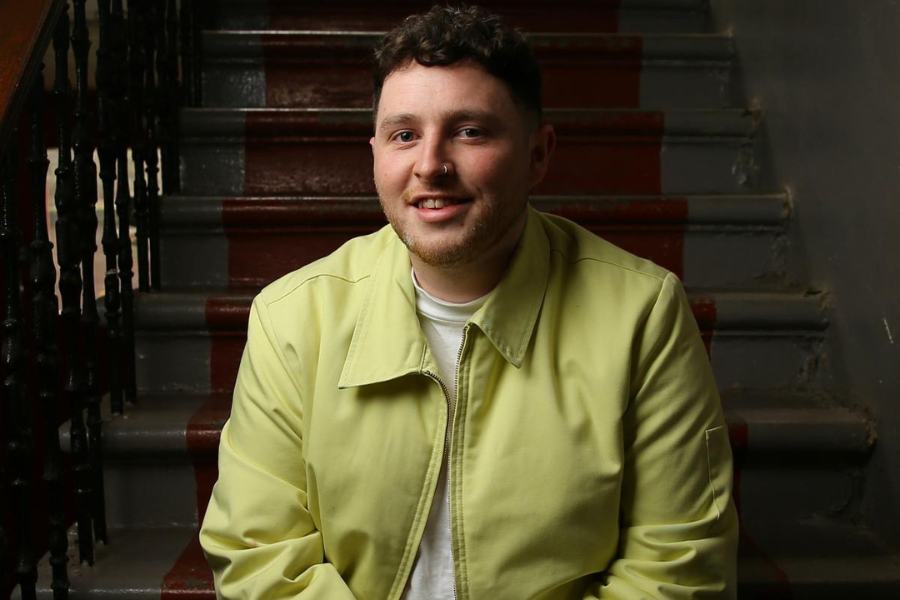
ONE of Scotland’s top online entertainers has said the Edinburgh Fringe is “designed for middle-class, English comedians”.
Paul Black told The National the Edinburgh Festival had serious issues with class, saying many working-class creators struggle to gain exposure in the same way their middle-class counterparts do.
For those who do get recognition, the Glasgow comic said too often it focuses on the drab, depressing and dark stories of Scotland.
But there is a lighter side to the country, and Black is determined to show it.
He’s been hard at work at that task already, releasing a series of viral online sketches seeing him observe parts of working-class life, and selling out the Armadillo with his live show Self-Care Era.
“When you grew up in a scheme, it’s just so full of larger-than-life characters that are just waiting to be immortalised in a comedy sketch,” he says, laughing, as he sits in a coffee shop in new home in up-market Shawlands, a short bus journey away from where he grew up in Cardonald.
“I definitely draw inspiration from people in my life. I think I noticed in the last year or so that some of the most popular videos is me impersonating someone’s mum, or someone’s dad.

“The funny thing is I was actually being a bit lazy, because I was like, I don’t have any sketch ideas today, I’ll just do ‘your maw when this happens’ or ‘your da’ when this happens’ and people love it.
“If you’re a mostly working-class person from Glasgow, you’ll relate to some element of these sketches. And I think that’s why they’re popular.”
Black said he was lucky to be in a position where he can use his considerable social media following to advertise his show, Self Care Era, at the Fringe, but says it can be tough for those without a big platform or connections.
“There are a lot of amazingly talented people out there that just don’t have the exposure that they need,” he said.
“I’ve built my own exposure by creating an audience but you notice that at the Fringe [that] it’s designed for middle-class, English comedians to thrive and for anybody else it’s like, if you’re lucky enough, if you’re really really good.
“And it’s not even just about if you’re really good, it’s if the right people know who you are, if you have the right kind of promotion, if you have money for PR.”
Black rose to fame through social media and word of mouth but despite his hundreds of thousands of followers and millions of views he struggled to get any UK reviewers to his sell-out show.
Black takes issue with the ubiquity of miserablism in Scottish TV and film, and says while it has its place, there’s more to the working-class experience than that portrayed in the likes of Ken Loach’s Sweet Sixteen and Peter Mullan’s Neds, as much he admires those movies.
“Of course, there’s a place for it in society because it’s very successful but I just think there’s so much joy in working-class communities and it just feels like it’s ignored,” he said.
“There’s hardship, and I’ve spoken about the hardship in creative industries when you’re working-class, but also I don’t want to make my writing about that. I can allude to that and explore that in a funny way, but you have these most amazing memories growing up in these communities that are full of joy and it’s not misery.
“There’s a misunderstanding that working-class stories, in order to be good, need to be harrowing and there needs to be someone dying in the queue for the Jobcentre.
“We all know if you’ve grown up in this community you are 100% aware of all the good things about it, and that’s why we’re all so proud of it and are happy that we had that experience.”
He added: “I don’t think any of us would change that experience for something where you’re just rich,” before joking, “Because then you don’t have any personality. It’s character-building.”
Black said he hoped there could be more Scottish scripted comedy commissioned saying a programme like Derry Girls proved having a non-RP accent can cut through to wider audiences.
“Derry Girls focuses on the people and that’s what we love about it because it’s people we all recognise and experiences we all remember,” he said. “And there could be a Scottish version of it.
“We have so many stories that haven’t been told, and commissioners are always looking for something we haven’t covered yet, but it’s right there in front of you. It’s just trusting and investing in writers who aren’t established yet – that’s the key to it.
“And you can see with Derry Girls that it doesn’t matter about strong accents, colloquialisms or local slang because the comedy travels internationally. America loves it – even the Simpsons referenced Derry Girls.”
Black challenges the assumption that people don’t understand Scottish accents.urging broadcast bosses and audiences to give it a try.
“Give them a chance. You’re not limited by your Scottishness, you’re not limited by your accent, you’re limited by your exposure and reach.”







